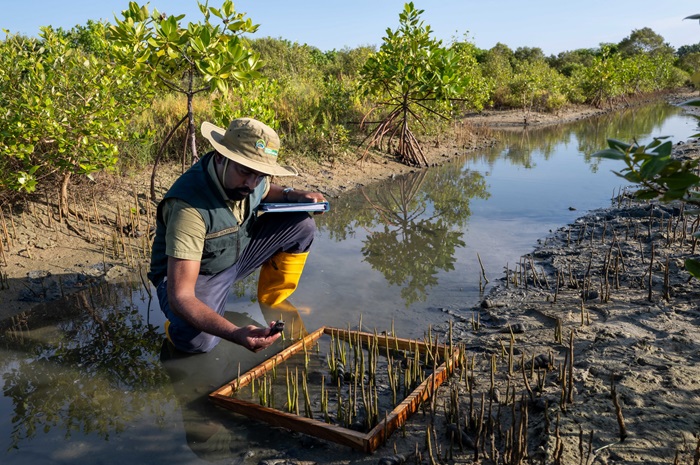
In a landmark achievement in the world of conservation, Sri Lanka was declared a UN World Restoration Flagship, in recognition of the nation’s vital efforts to rebuild and restore its mangrove ecosystems.
The UN Flagship Restoration Award is a timely recognition of Sri Lanka’s viable, lasting solutions towards the restoration of these essential ecosystems which support countless lives and livelihoods across the island.
The nation is slated to receive the award at the United Nations Environmental Assembly which will be held in Nairobi on February 27, 2024.
The award signifies the nation’s effective use of the UN’s Principles for Ecosystem Restoration, while highlighting globally significant best practices and methodologies that can potentially serve as a framework for future success across the world.
The aftermath of the 2004 tsunami and its destructive impacts on Sri Lanka’s coastline highlighted the importance of mangroves as a coastal protector. Unfortunately, the continued destruction of mangroves and the lack of a formal mechanism impeded effective conservation and restoration.
Sri Lanka’s commitment to strengthen its coastal ecosystems dates back to 2015 and beyond and was accomplished by the establishment of expert panels, task forces, policies, action plans and restoration guidelines that represent top-to-bottom and bottom-to-top coalitions for action and conservation.
The nation’s revolutionary approach towards mangrove restoration is primarily underpinned by science-driven methodologies, with a focus on reviving ecosystem services. This two-pronged approach is designed to restore the balance of the entire ecosystem and its connectivity. The involvement of youth as researchers and future restoration leaders, and the mobilisation of multiple stakeholder groups spanning the Government, NGOs, the private sector, academia and the community have culminated in a new paradigm of restoration that is built for the future. (NewsWire)


